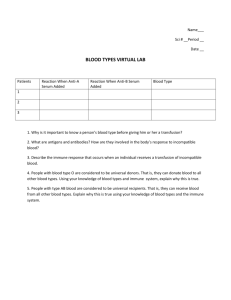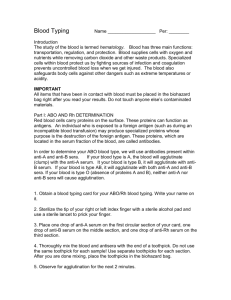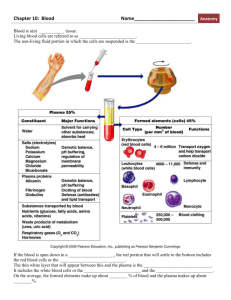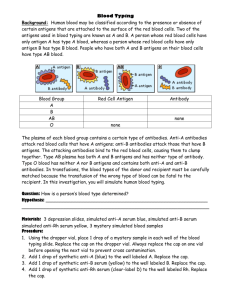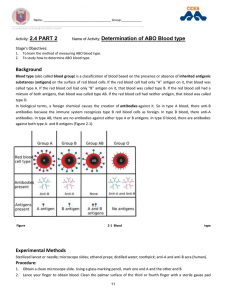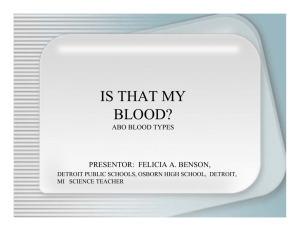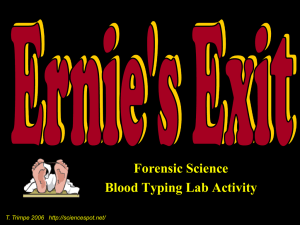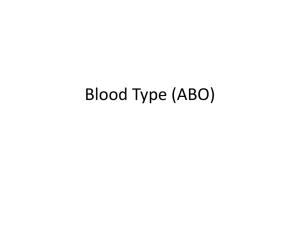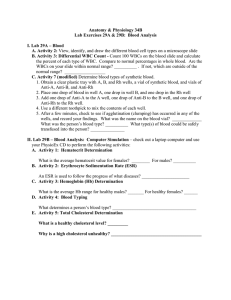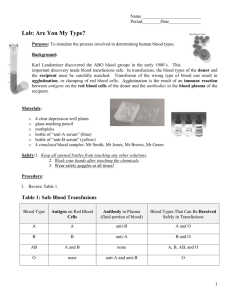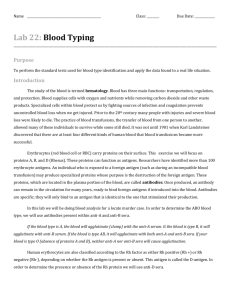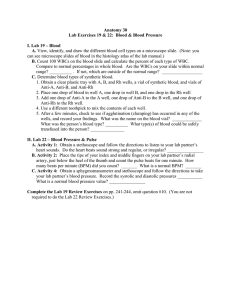12th ed. Instructor Lab Manual
advertisement
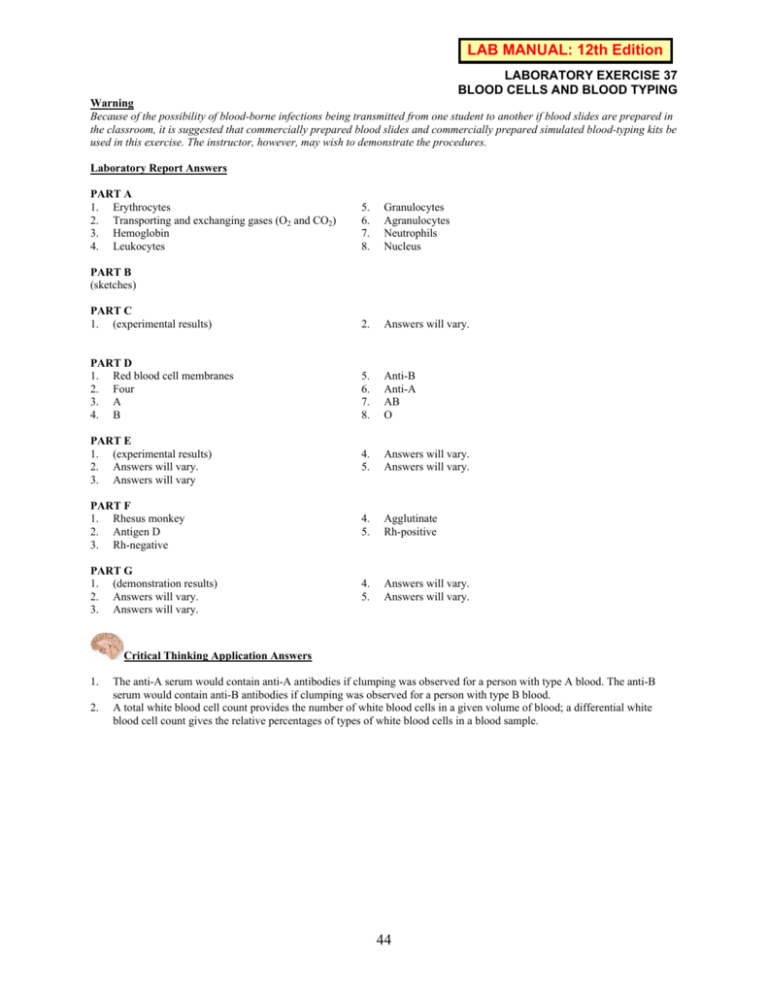
LAB MANUAL: 12th Edition LABORATORY EXERCISE 37 BLOOD CELLS AND BLOOD TYPING Warning Because of the possibility of blood-borne infections being transmitted from one student to another if blood slides are prepared in the classroom, it is suggested that commercially prepared blood slides and commercially prepared simulated blood-typing kits be used in this exercise. The instructor, however, may wish to demonstrate the procedures. Laboratory Report Answers PART A 1. Erythrocytes 2. Transporting and exchanging gases (O2 and CO2) 3. Hemoglobin 4. Leukocytes 5. 6. 7. 8. Granulocytes Agranulocytes Neutrophils Nucleus PART C 1. (experimental results) 2. Answers will vary. PART D 1. Red blood cell membranes 2. Four 3. A 4. B 5. 6. 7. 8. Anti-B Anti-A AB O PART E 1. (experimental results) 2. Answers will vary. 3. Answers will vary 4. 5. Answers will vary. Answers will vary. PART F 1. Rhesus monkey 2. Antigen D 3. Rh-negative 4. 5. Agglutinate Rh-positive PART G 1. (demonstration results) 2. Answers will vary. 3. Answers will vary. 4. 5. Answers will vary. Answers will vary. PART B (sketches) Critical Thinking Application Answers 1. 2. The anti-A serum would contain anti-A antibodies if clumping was observed for a person with type A blood. The anti-B serum would contain anti-B antibodies if clumping was observed for a person with type B blood. A total white blood cell count provides the number of white blood cells in a given volume of blood; a differential white blood cell count gives the relative percentages of types of white blood cells in a blood sample. 44
